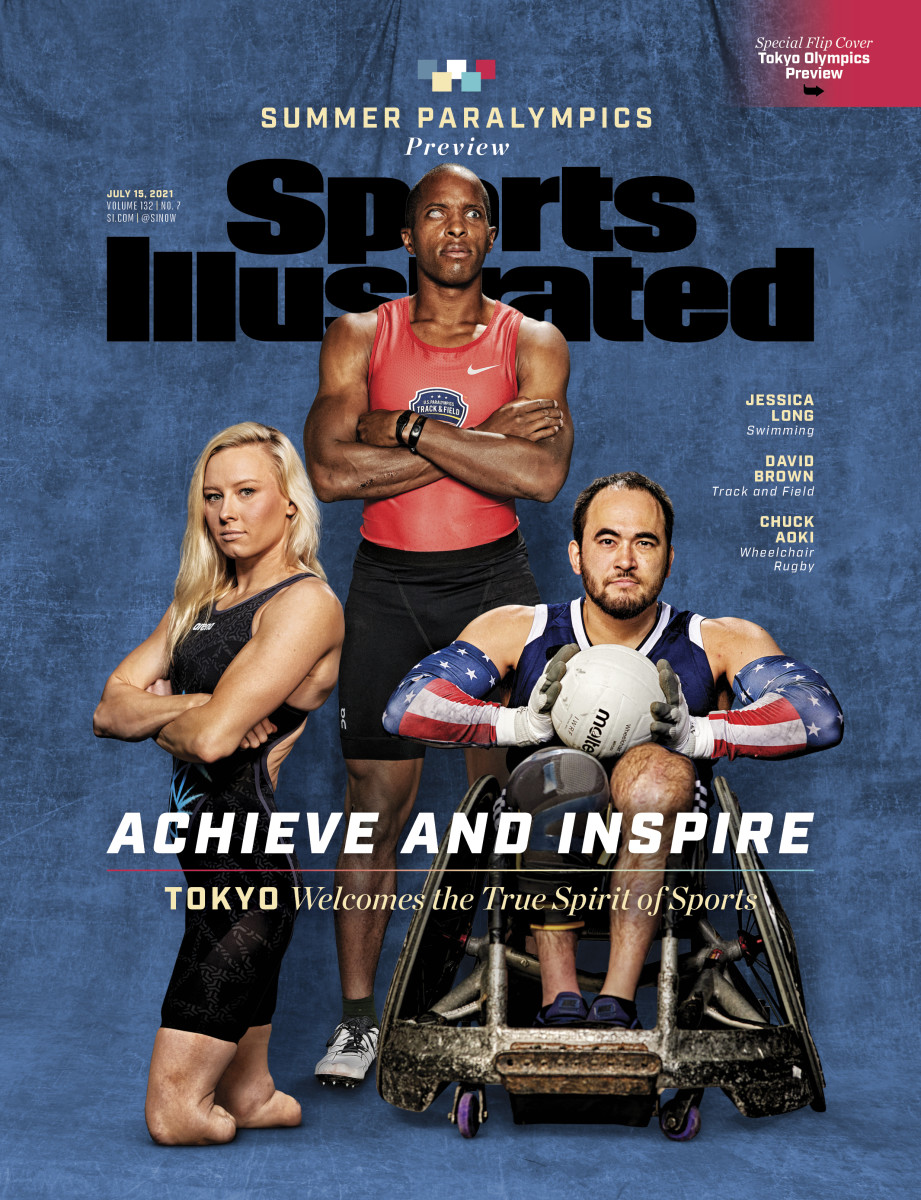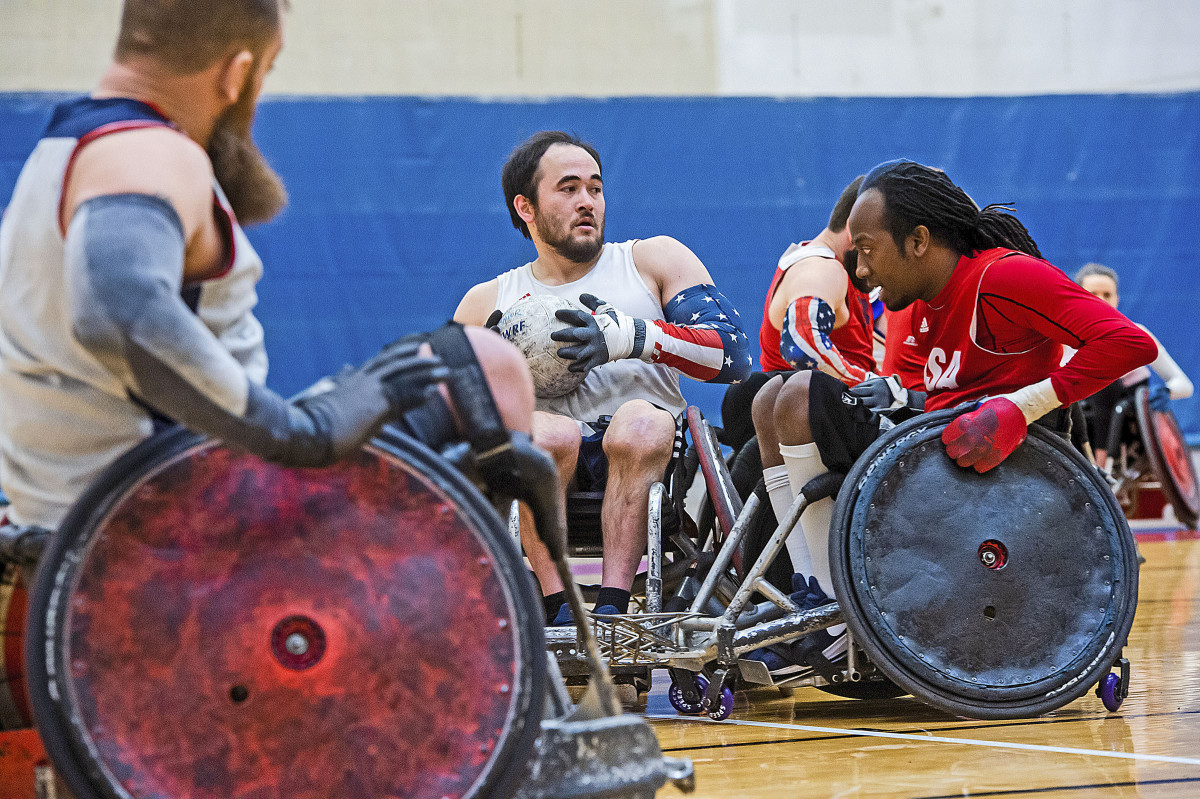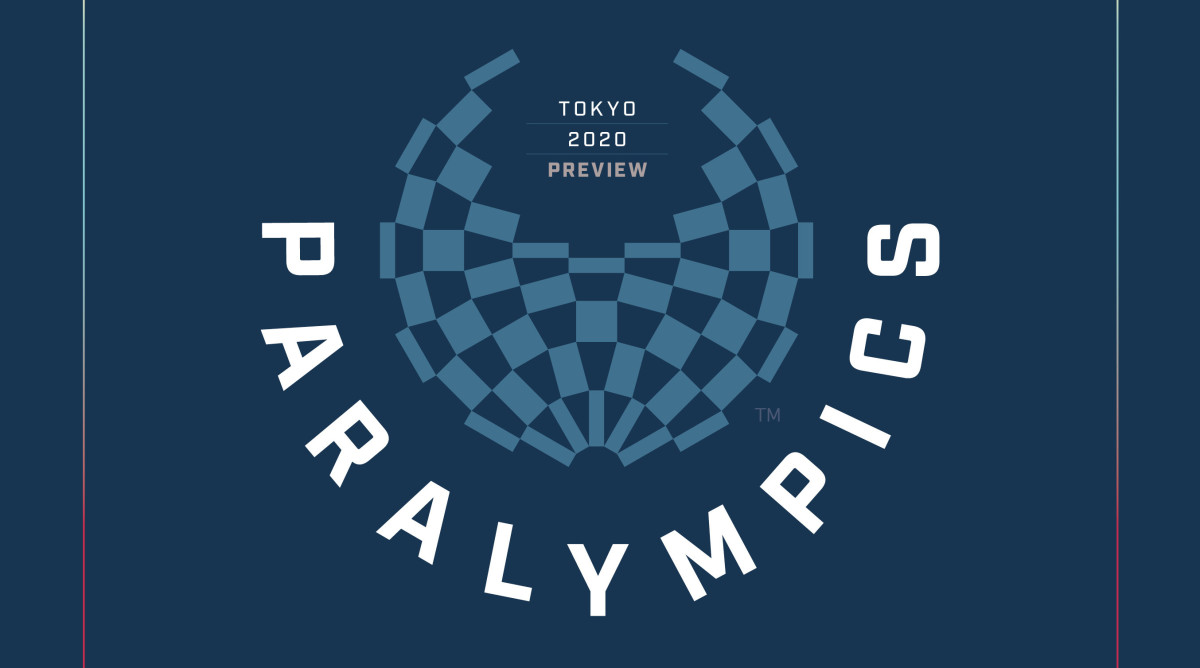Third Time's The Charm?
After a year's delay, and only 16 days after the conclusion of the Summer Olympics, all eyes will turn once again to Tokyo, which will become the first city to host the Paralympics for a second time. More than 4,350 athletes from 168 countries will contend across 22 sports in the 16th edition of the event, which is designed to drive awareness and change perceptions of those with disabilities and impairments. The competition for medals will be fierce.
In January, Chuck Aoki traveled to Birmingham to train for his third Paralympics. After winning a bronze medal in 2012 and snagging silver four years later, the emotional leader of the veteran U.S. wheelchair rugby team figured the Tokyo Games would present his final—and perhaps best—opportunity to grab an elusive gold.
But there, everything unraveled: After three days of practice, Aoki didn’t feel well, and the night before his return trip he woke up covered in sweat, his body convulsing from chills. He couldn’t stop vomiting.
He sped to the hospital, where doctors discovered a serious infection in his right knee—so serious, in fact, that Aoki spent most of February in a Birmingham hospital.

Infections are an unfortunately common part of the Paralympic existence. But this was worse: more painful, more extreme. Doctors operated five times to try to clean out the infection. They sent him home to Kerrville, Texas, where he had spent the pandemic with his girlfriend, Liz Gregory. But after 10 days of cautious optimism, the knee swelled again. Another MRI revealed that the infection had gone up his tibia and into his femur; it would require another four-hour operation.
As March turned to April, Aoki, now 30, started to grow concerned. Sitting in the hospital, he wondered, “Am I even going to be able to compete?”

Growing up in Minneapolis, Aoki didn’t discover his disability—a genetic condition known as hereditary sensory and autonomic neuropathies type II—until age 10. Signs had surfaced earlier, he recalls: When other toddlers began to take their first steps, he “walked really weird and on my knees.” His parents, Andrew Aoki and Jennifer Nelson, had persistent concerns and took Chuck in for a nerve biopsy, which uncovered the rare condition. Aoki could feel little or no sensation beyond his elbows and knees. That explained why, after he broke the femur in his left leg at age 6, he still played basketball for weeks, sustaining additional injuries. He couldn’t feel the pain. Aoki started using a wheelchair and spending what felt like half his life in hospitals, undergoing scans, examinations and a seemingly endless slate of tests. Eventually, Chuck’s parents took him to what’s now the Courage Kenny Rehabilitation Institute in Minneapolis.
There, sports soon became an obsession, despite the drawbacks: Because Aoki cannot feel below his elbows, he tended to get his hands caught in the worst places while playing. Cuts often led to infections in the bones, which meant that most of his fingers had to be at least partially amputated.
In 2005, while in the hospital for treatment of another infection, Jennifer suggested they watch a documentary about the Paralympics—a movie and a moment that would change his life. Murderball, a shockingly violent, expertly crafted film about wheelchair rugby, is a powerful statement on disabled athletes that inspired Aoki.
“I’d love to play that,” he told his mom, who shook her head before finally relenting. He didn’t just want to play. He wanted to hit, to fly, to absorb blows and receive them.

To be eligible for Paralympic wheelchair rugby, participants need to have impairment in at least three limbs. Without those partially amputated fingers, Aoki would not have qualified, nor identified as much as he did with his teammates. Like him, many used their teeth to put on gloves. Like him, many had diminished hand function. But they were more innovative. “It was this whole new world that opened up to me,” Aoki says.
In 2007, Aoki joined a club team in Minneapolis and immediately demonstrated his fitness and skill. Aoki made the national team in ’09 while still a senior in high school, becoming, at 17, its second-youngest member ever. A year later, he helped the U.S. win gold at the world championships in Vancouver. In ’12, Aoki made the Paralympic team for the first time. Four years after that, he was named captain.
For a team with an older core, the Tokyo Games represent a last, best opportunity to try to end a title drought. A dominant force in the 1990s, the U.S. hasn’t won gold at the Paralympics or the worlds since that 2010 victory. Top-ranked Australia stands in the way, along with Japan and Great Britain. But while Aoki desperately wants to hang a gold medal around his neck, he’s playing for far more than a single event.
Aoki’s infection finally healed in time for him to embark on his quest for gold in Tokyo, where he will serve as the U.S. flagbearer, along with paratriathlete Melissa Stockwell, at the Opening Ceremony. That quest is for the sports-obsessed boy who needed a wheelchair but still desperately wanted to compete.
Ultimately, it’s about representation. And Aoki, the unlikely wheelchair Paralympian whose great-grandparents emigrated to the U.S. from Japan, represents so much. What’s beautiful is how his dual aims—to win gold and be visible as a Japanese American during a wave of discrimination and violence against Asian Americans—work in tandem. The better the finish, the broader Chuck Aoki’s platform. The broader his platform, the more change he can make.
Jessica Long is Unparalleled
David Brown is Going Straight—And Fast
How Kelly Elmlinger's Fateful Work Led Her to the Paralympics
